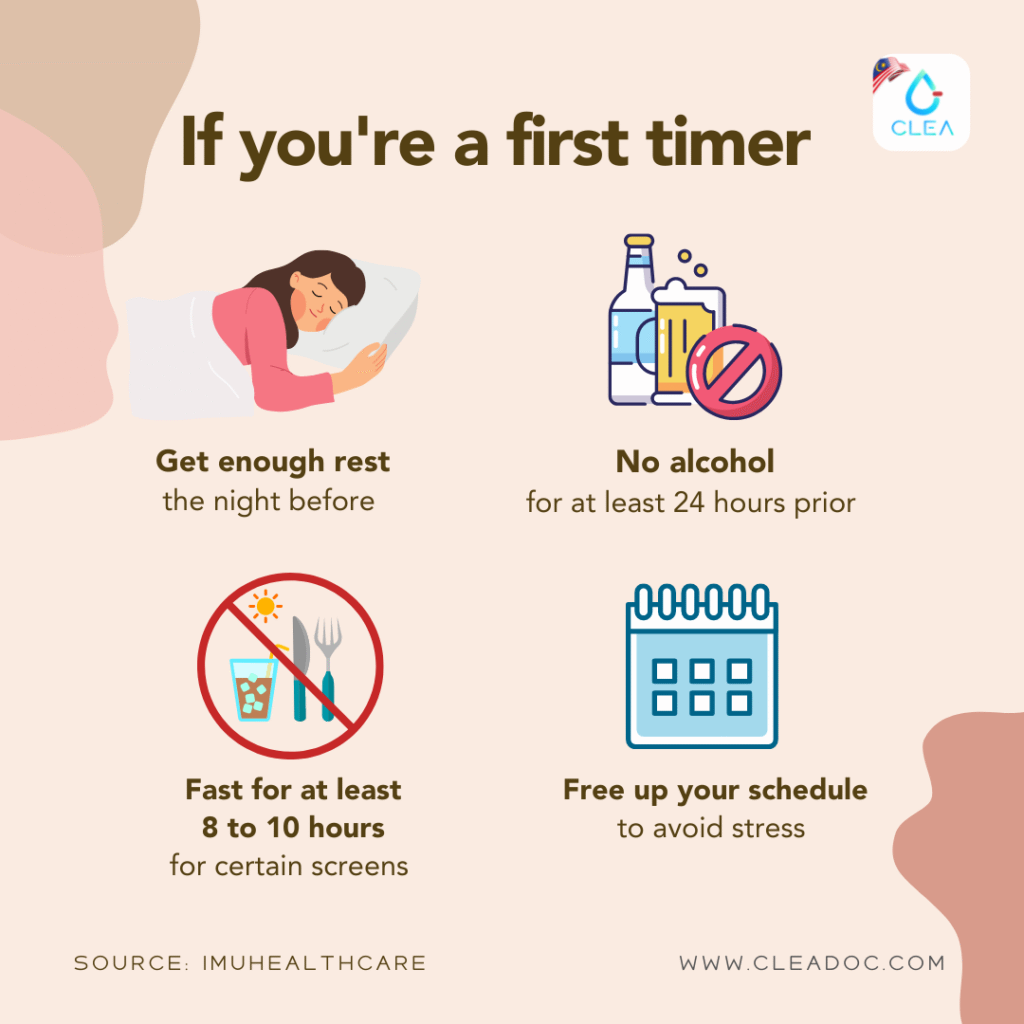Is it necessary to do health screening even if you feel you’re healthy?
Health screenings assures you that as healthy as you feel you are. Moreover, it also allows you to identify whether you’re at risk to or have any disease or medical condition that you may not know about
Health screening helps with early detection on diseases or medical condition that are asymptomatic or you’re not aware of that is affecting your health until a later stage. This puts you at favour to address the health concern and receive the necessary treatment before the condition worsen. (Source: health.gov)
If you’re a first timer and have never done health screening before, here are some tips to pick the suitable health package for yourself.
#1. With all the different health screening packages out there, did you pick the right one ?

Health screening packages are divided into two categories:-
(i) Basic
(ii) Comprehensive packages.
Basic health screening packages includes screening for general health conditions like diabetes, high blood pressure, obesity and high cholesterol levels. This option suits younger patients who do not have family history or hereditary medical condition,
Comprehensive health screenings is a more in-depth package. It includes additional screen for more medical conditions on top of the basic health screening package.
Therefore, choosing health screening package very much depends in your health needs. Factors to consider when making choice on health screening package includes:-
(i) Age
(ii) Family medical history
(iii) Personal medical history
Don’t fret, there is no such thing as choosing the wrong health screening package, but if you have a doubts, you can always consult your doctor to assist you on choosing what suits you best.
#2. Which health screening packages is suitable ?
Below Age of 40
For people in their 30s, if you’re healthy and under the age of 40, you can opt for the basic health screening package, unless you have any concern of health or your doctor advices otherwise.
However, please note that screening packages varies a little from men and women.

For men and women below the age of 40, basic health screening is advisable which includes HbA1c, cholesterol profile, blood pressure, Body Mass Index(BMI), Liver Function, Thyroid Function, Hepatitis A & B Screening, Resting ECG, Urine Analysis and Chest X-ray. As for women who are sexually active, it is advisable to opt for an additional test, Pap smear on top of other tests mentioned.
Above Age of 40

For individuals above the age of 40, you can consider these additional screening options.
(i) Tumour markers – known as cancer markers, this health screening can identify your risk of certain types of cancer such as colon, nose, liver, pancreas, breast and ovary.
(ii) Cardiac health screening- This screening can detect any abnormalities pertaining to your heart health. A cardiac health screening will involve an electrocardiogram (ECG) that measures the electrical activity of your heart when you’re resting and engaging in strenuous activities.
(iii) Bone Mineral Density (BMD) test- A BMD test evaluates your bone health. As one ages, the risk of porous bones increases and ultimately which leads to osteoporosis. With the help of a BMD test, you’ll be able to take charge of your bone health, which is crucial to maintain your independence as you age.
(iv) Breast health screening – An ultrasound of the breast and a mammogram is recommended for women above the age of 40. Breast health screenings will be able to identify and differentiate cancerous and benign lumps in your breast. Annual breast health screening is recommended for women between the age of 40 – 49 and a screening every 2 years is recommended for those above 50.
#3. Is it too late to get screened if you’ve never done health screening before?

Don’t worry, it’s never too late to schedule your first health screening appointment, here are some information about the health screenings you should consider at this age.
Congratulations if your health screening result came back excellent. You have learnt that health screening helps you understand your body condition. This is the reason it is encouraged to get health screening done annually. During your health screening, take this opportunity to ask your doctor when should you get your next health screening done.
#4. Tips for health screening first-timers

(i) Have a good night rest
(ii) Avoid taking alcohol at least 24 hours before your health screening
(iii) You may need to fast for certain health screenings (ie. abdomen ultrasound & blood test). Avoid food and drink (water excluded) for 8 to 10 hours
(iv) Do free up your calendar. Sometimes health screening can take up half a day or even a whole day.
(v) If you’re on your period, let the doctor or nurse know.
(vi) Wear clothes that allows doctor to have access to your upper arm. (Source: imuhealthcare)
#5. Will the doctor perform a consultation after your health screening result is ready?
You can always request for a doctor’s consultation after getting your health screening report. The doctor will advice:-
(i) Whether your result is normal
(ii) Do you need additional test
(iii) Tips to improve health
(iv) When should you do your next health screening
If your health screening result isn’t good, do not worry. The doctor will advice you accordingly on how to improve or address the issue.
Useful Links: https://cleadoc.com
Reference :
https://www.parkwayshenton.com/healthplus/article/first-time-health-screening
https://www.imuhealthcare.com.my/preparations-for-health-screening
https://health.gov/myhealthfinder/doctor-visits/screening-tests/get-screened

